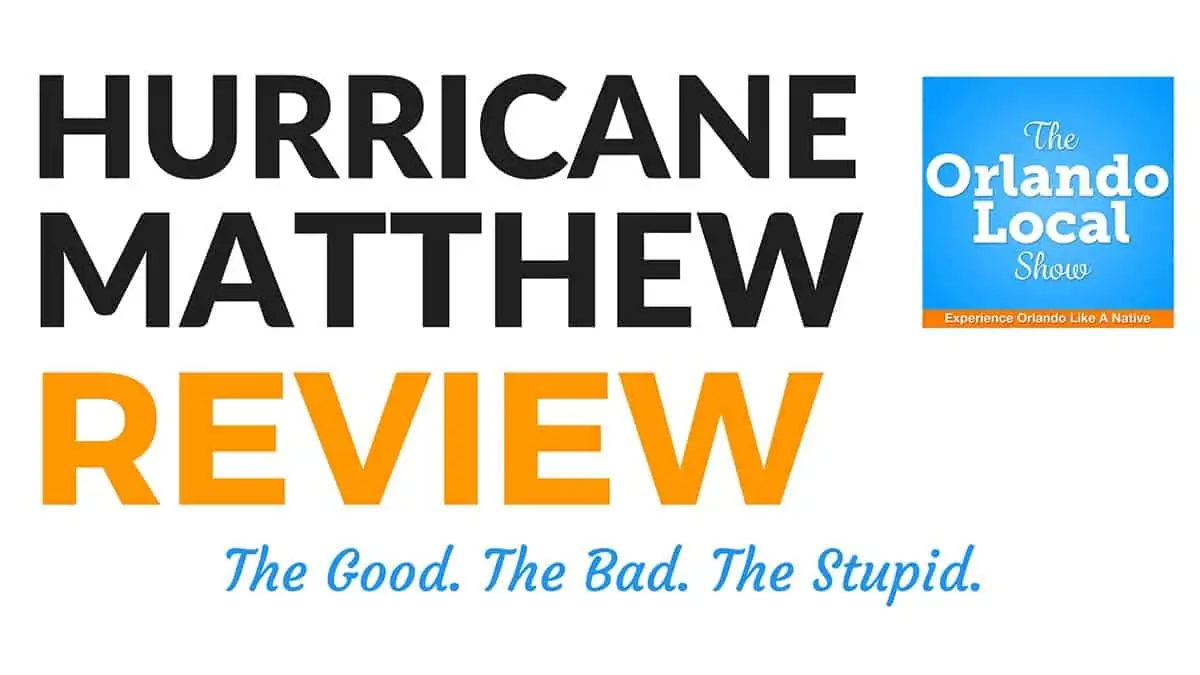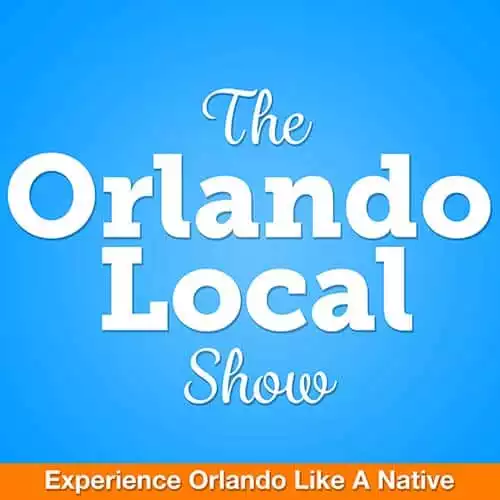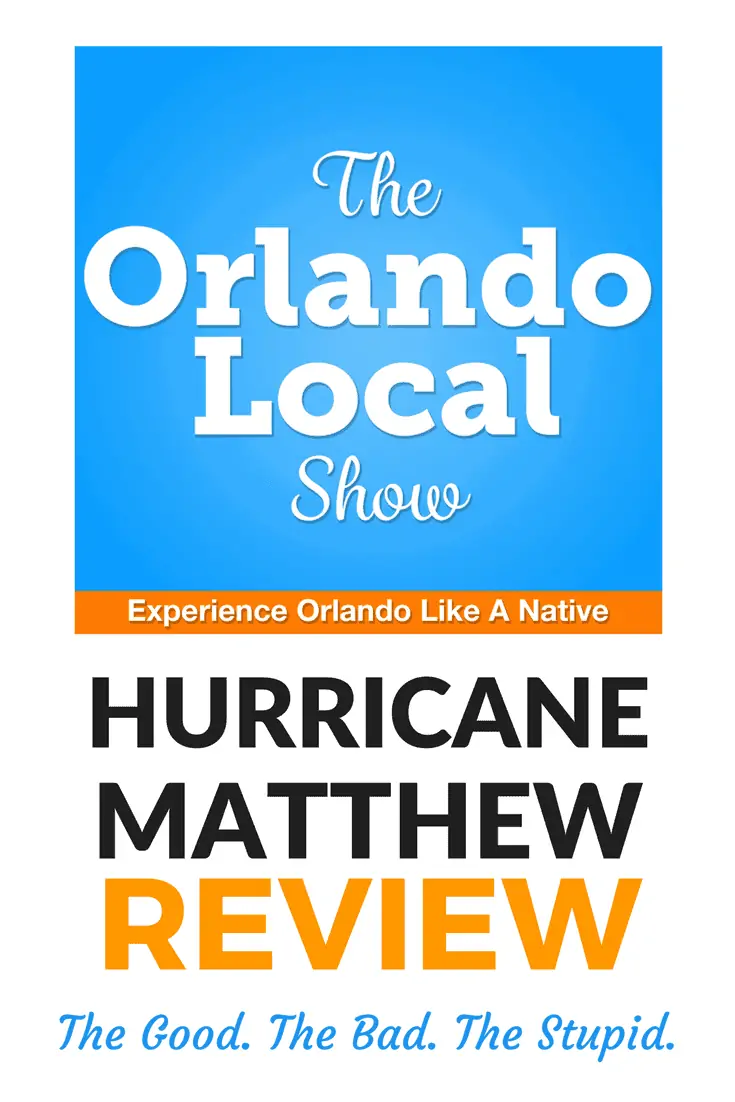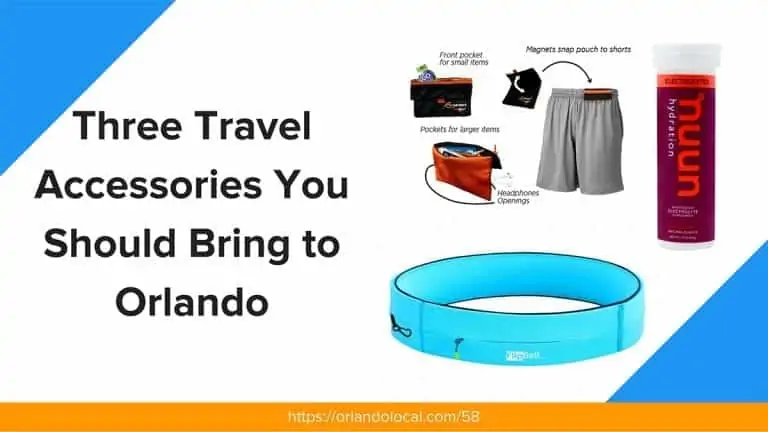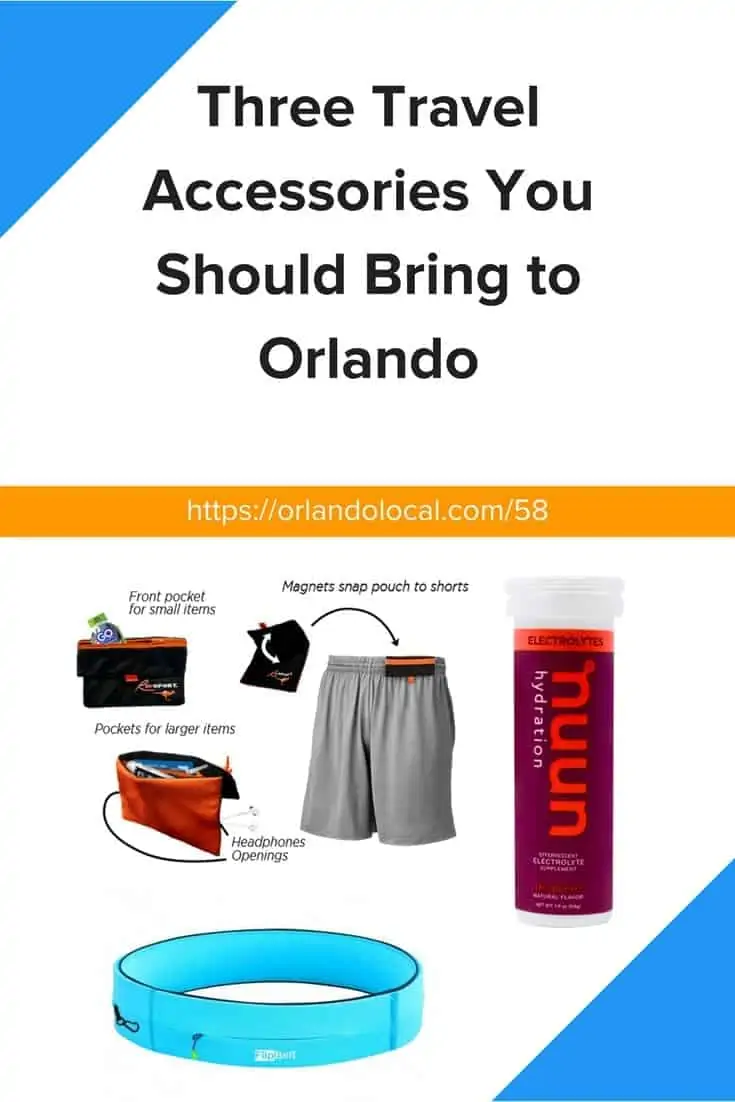Hurricane Matthew Review
Hurricane Matthew Review: We Tell You What It Was Like Before, During and After
Thank you for listening to The Orlando Local Show. In this episode, we’re giving you an inside look with our Hurricane Mathew Review.
We’ve been waiting for Hurricane Matthew to arrive in Central Florida for over a week. This storm took a strange path, but that gave us plenty of time to prepare.
Some people prepared and some didn’t. Those that didn’t spent time surfing, despite dire warnings of impending doom and death.
How Did Everyone React to Hurricane Matthew?
We looked at four aspects in our review of Hurricane Matthew, mostly to see how certain groups reacted to the weather.
How did each group stack up and what did they do? That’s part of the show, but I’ll give you a peek and you can find out the details in the show.
Here’s mostly what we saw regarding Hurricane Matthew.
In other words, it was like every other hurricane that comes close to Florida. This storm was one of the very few times that Walt Disney World closed down the parks for bad weather. We’ll talk about the way Disney handled it, and also discuss some of the repair after Matthew passed Central Florida.
Transcript
William: Welcome to the Orlando Local show, episode thirteen.
Hi, my name is William Beem and I only buy cereal when it’s on buy one get one specials.
Lee: Hi, my name is Lee Beem.
William: Today we are going to be talking about Hurricane Matthew. As a matter of fact, we are going to review Hurricane Matthew; the good, the bad and the ugly. Or in this case, since it’s Florida, we are going to give you the stupid.
We just got through with Hurricane Matthew and this is actually being recorded on Saturday night, the day after Hurricane Matthew. And why are we bothering? Because one, well it’s fresh on our minds and two, it was just a real waste of a day, wasn’t it?
Lee: Yeah! You think you are getting this bonus day off because everything is closed. I mean, I don’t mean to make light of the situation, but you know work was canceled, school was canceled and everyone was told to lock up tight and take cover. But we couldn’t do anything.
William: No and you really can’t. Here’s the truth about hurricanes with Florida. I’ve been through a lot of them because I’ve been here my whole life and you are always going to lose power. I don’t care which category it is. I’ve been through enough of them to know that you are going to lose power because the power lines, even if they are not in your neighborhood above the ground, other lines leading to your neighborhood are above the ground and they are just going to be wiped out. A good breeze takes out electricity and we never do anything about that. We never put them into anything more secure that will actually handle a hurricane.
Lee: Well that wouldn’t be fun, would it?
William: No, it probably costs too much to do that. You are going to lose your electricity; you are going to lose your air conditioning.
Lee: Oh dear, and we had a double whammy with that one.
William: I know. We started off the hurricane in relatively good shape. We had a nice house; we had bought everything we needed. We went to Publix a couple of nights before. Publix is the grocery store that is kind of the predominant chain here in Orlando. If you are going to plan for a hurricane, plan early. We did that and we got there and noticed two things were really sold out. Actually, three things: bread, bananas and water.
Lee: Yeah, absolutely empty.
William: And of those, all I wanted was bananas. So we got lucky and we found a stalk of bananas. I wasn’t worried about bread. We had bread at home. I wasn’t worried about water because there are other things to drink.
We went over to the wine aisle and there was nobody touching the wine.
Lee: Well, we sorted that out.
William: Exactly. So here’s our tip number one: if you can’t drink water, drink wine.
Lee: Yes, or beer. There was lots of beer as well.
William: Was there?
Lee: And rum.
William: They have rum at Publix?
Lee: Yes.
William: I didn’t notice that. A lot of people go in there and the first thing they are always told is you need to have a gallon of water per person per day. And they tell you to plan for at least three days worth of water.
For some places this made sense, particularly over at the coast, because in Melbourne they turned off the city water supply because they were afraid that the storm was so powerful that it was going to rupture the underground water pipes and they thought, well, better that we just turn it off. But as soon as they turn it off, that means that bacteria can grow and they get a “Boil Water” alert. So you need to have fresh water.
Where we live in Orlando area, that was not a problem. We never had our water turned off, there was no interruption to water supply, yet people were buying water as if it was gold.
Lee: It was actually kind of frustrating because I said to you the other night, there is nothing wrong with buying some water if you really think you want to have some, but people were going crazy. They were clearing the shelves and the truth is, there were people from the coastal and high alert areas who had been sold out in their stores and they were actually driving miles and miles to find stores that did have. I kind of felt there were people who needed it.
William: Yes, and we are going to talk about this later. There are other resources that you typically need before a hurricane and you want during a hurricane and some things you need after a hurricane.
But let’s start off with this. So here is what we are going to cover. We are going to go over the news and weather reporting of the event, during and even and after the event. We are going to talk about the government actions. We are going to look at some of the public responses to this and of course, some of the business responses.
So why don’t we start off with the news and weather, because that is what is in everybody’s face.
Lee: Yes.
William: For us, we watched the local NBC station, which is WESH and it was actually really entertaining and also a bit frightening. They have got new weather toys. Keep in mind, we haven’t had a hurricane really hit Florida for ten or twelve years. Some of the people that were reporting on this have never professionally reported on one before.
Lee: And then they had their new gadgets.
William: They had new gadgets. They were looking at what kind of storm surge we were going to see, what kind of wind there’s going to be, county by county. To their credit, they are trying to be very helpful, they are trying to say what to expect. Were they accurate?
Lee: I believe they were accurate at the time. They were very clear all the way through and like with any weather, and especially unstable weather conditions like this, things can change in a matter of minutes and it can just completely change the end result and the impact point, whether or not there is going to be one. And they were right. That storm over the days leading up to its approach downgraded and upgraded a number of times and the course kind of wobbled this way and that. You can see that is the nature of the game.
William: It does. And a week away I wasn’t worried at all because this thing was way out in the Atlantic and it was going up and I thought it was going to go into Virginia or someplace like that.
And day by day, every few hours during the day, it just came closer and closer. And this thing really just skirted up the Florida coastline and I don’t think it ever really touched in Florida; I don’t think it touched until it got to maybe Savannah, Georgia; well past us. But it was close enough on the coastline that a category four storm and I think it was category three by the time it got here. We got lucky that it slowed down a little bit. It can do tremendous damage, but yet for our home, and we are inland in the Orlando area, it wasn’t so bad.
Lee: No it wasn’t, but it did downgrade. Even watching it through the night.
William: They told us the day before, even the day that it was coming, to expect 70 to 90 miles per hour wind in our area. I don’t think we ever got anything that high.
Lee: We didn’t. I think the highest we got, according to the tracker that I was following which was live up to date, was somewhere in the 50 mile zone.
William: The most I saw was 46, but let’s go up and say 50 and maybe a little bit above, but that is still tropical force winds; but not nearly as bad as what they were expecting. I am very, very grateful that we didn’t get the kind of wind they were talking about.
Lee: Oh, we all are!
William: We got a lot of rain. We got almost nine inches of rain here and you know what? The next day here it is dry! Florida is a sponge. It just soaked all that water up and it went down.
Now that is not to say that we are without damage in the area. We had a small tree in the back yard that collapsed and fell on our fence. Fortunately it didn’t damage the fence.
We’ve got a neighbour who lives a few miles away in the same town and he had an oak tree just smack onto his roof and we saw photos of folks who had other damage where oak trees had fallen and some of them had pierced the roof and gone inside – fortunately nobody was hurt – we had a few people who had trees fall on their cars because they were parked outside.
Lee: Yeah, why?
William: Maybe they didn’t have a garage or there was too much stuff in the garage.
Our next door neighbour kind of worried me because he had a pontoon boat that he put just to the north of our property and that was the direction the wind was coming in from – the north. I was afraid that thing was going to get picked up and thrown at our house.
Lee: I think there were two boats out there right along the fence.
William: Yeah. Fortunately that didn’t happen either, so this was not as bad for us as what was expected or predicted; at least the way I was made to feel.
I was really stressed out that night that we were going to bed.
Lee Yeah, I didn’t sleep. I know you did get some sleep. I was up all night.
William: And then the next morning that’s when the storm should have been knocking at our doors, the way they phrased it. I thought, hey this isn’t so bad! I could take the dogs outside so they could go to the bathroom.
Lee: Yeah, because we were concerned about how we were going to handle the dogs.
William: We thought we were going to be stuck inside the house all day long, just shuttered in because the weather outside would blow us down. And it was never quite that bad. We definitely got heavy wind gusts, we got a lot of rain, but nothing that was unbearable.
Lee: It wasn’t, but having said that, the hurricane actually shifted east just before it approached in line with where we are on the coastlines. It could have been .... Had it gone the path that over which it was moving, we would have had what we feared to have. And that would have rolled in significantly closer.
William: Oh, absolutely. Now the people I was worried for are the ones who were along the Atlantic coast of Florida. Folks over there were not mincing words at all. They were told several times by government officials, by news reporters and even fire department folks who were driving up and down the street with their loudspeakers on, saying, “If you stay here you will die.”
It’s just a dire warning. The government, the media, everyone was doing their part saying, “You need to evacuate. You need to get out.”
And some people stayed behind.
Lee: They did, but I think although it sounds like overkill, what we got was a lucky escape. That is not what we expected and if we got what was set up to hit our coastline, I believe that those warnings would have come to pass.
William: Well, if you look further up the state, when it got past us in Central Florida, it got up towards the Jacksonville area. They definitely had a lot more damage on the coastline than what we had here.
Flagler College had video of water just racing through the hallways and stairs. It was clearly a surge that you just could not withstand.
Mind you, before the hurricane comes in there are always going to be people out there surfing and we saw a video of people out there kite surfing and I just thought they are just going to catch a breeze and sail on up to Savannah.
Lee: That was my favorite warning or favorite announcement, when the Governor was making his address. He was saying that the height of the waves was fifteen feet breaking on the shoreline.
William: And all the surfers ....
Lee: It was just the seriousness with which he said it when he said, “Please. Do not go surfing.”
And I realized that he was serious because people are going to try it!
William: They don’t try it. They do it. Every time we have a hurricane come in, even a tropical storm, they are not only going out there surfing. They are taking videos of themselves and posting them on YouTube of them surfing in a hurricane or tropical storm.
Lee: That really got me.
William: There’s a Jimmy Buffet song, Surfing In A Hurricane, and they use that for music on their surfing videos so yeah, go out to YouTube and check on surfing in a hurricane. You’ll find videos of these guys out there.
And their storms don’t look so bad. The video of the water that we saw before the storm came in was bad enough as it was. I would not go out in that stuff. There was even video of a small child that was a little too close to the ocean and got pulled in and her father had to go back in and drag her out.
Lee: That’s scary stuff.
William: Oh, it’s nothing to mess with. Nature is stronger than we are and that’s why some people were really worried about their family members who decided they wanted to stay behind.
One woman I know was telling her parents. Her dad said, “I’m going to stay here and protect what is mine. I’ll battle it out.”
And she said, “This is not a battle. It’s a natural disaster. You will die.”
Lee: Yes, but they had already closed the roads out – this was post deadline for evacuation – and they were reporting live from one of the beaches there and there were people sitting in the background on the beach with their beach chairs.
William: There is always a hurricane party. There is always going to be somebody who stays behind and says it’s not going to be so bad. I’ve got plenty of room and I’ll just ride it out. And fortunately for a lot of those people the storm didn’t hit as hard as it would have. I think further north people definitely did get hit harder. I mean we saw a video of some of the buildings on the beach where erosion just caved away the sand dunes underneath part of the building and also there were channels where the water was rushing through. In Jacksonville area in that part of the state it definitely lived up to the hype it was getting.
Lee: It was horrible.
William: The weather folks were working very long hours. We were watching WESH2, as I mentioned and we saw the same people over there and you don’t see anything else on that channel. They don’t come in and interrupt the show or anything like that. They are on, doing news, the whole way through the storm.
I went to sleep, they were doing the news. When I came home from work earlier in the day they were doing the news, when I woke up the next morning they were doing the news ....
And the same guy. Tony Mainolfi was there.
Lee: Oh, he’s brilliant. As soon as the weather came on I went running just to see his enthusiasm.
William: Tony is very good about declaring the danger of what the storm is, but he also, when he was standing waiting for his turn to go do the stuff it looked kind of like he was going, “Come one, hurry up! Hurry up! It’s my turn. I want to talk.”
Lee: Me! Me! He is very passionate about what he does, which makes him really good at it. But he just looked like he wanted to climb into that Doppler screen.
William: So if, by any chance Tony Mainolfi, you are listening to this, you should know that we really do appreciate you. We think that you do a wonderful job on the show, but also, your enthusiasm showed and we thought, “He’s loving this!”
Well, you know what? This is kind of the big event for meteorologists and forecasters. This is what they really gear up for. They will see the weather all year long. There are all sorts of changes and it’s interesting, but these are fascinating events for people in that field.
Lee: It is, but not just that. Everybody relies so heavily on them. They are the ones we are counting on to let us know what to do. I mean there will be no warnings going out if they don’t read the stuff right.
William: That’s true and I’m glad that they have got all those new toys. The toys that they were talking about was something that would predict storm surge and they were showing that they would just click a little button or a pixel on the ocean map and they would say wave heights are going to be nine feet here, fifteen feet there. I don’t know how they come up with that forecast. I’m sure there is a lot of math, particularly how the storm is moving and where the wave heights are further out that are going to be pushing things in. It’s fascinating what probably goes into making that calculation. But they were really digging that and also, it was showing not only what the wave heights were going to be, but areas where they suspected that the water was going to come rushing in. How far is the surge going to come in? Where is it going to come in further?
Lee: That is valuable information. If you are in an affected area ... I’m not complaining that it turned out to be less. We are thankful for that. We are also thankful that had it not moved at the last minute, we would have been warned, I believe, pretty accurately about what to expect.
William: Now one of the things WESH2 does is they have iOS apps and probably Android as well, and that is kind of their hurricane tracker. It lets you know what’s going on. But Lee, you also downloaded a Weather Underground app.
Lee: I did. I was using the WESH2 and I like them so I’ve got the news and weather app on my phone and when we realized sometime midday Thursday, schools had been closed for Thursday and Friday, and I thought I’m going to use this hurricane tracker for the duration of the storm. I downloaded it, but I found that it wasn’t really giving me much more than what I was getting live on their regular app.
Then I remembered that I always used to use Weather Underground and they have – I think it’s a storm tracker app – but that one was very accurate. I mean, it showed where every power outage was, it showed when power was restored, it showed slippery conditions and flooding. It just had a whole host of details and if it’s too much for you, you can actually turn things off and you can also click on their and report things and it will track your location and add your status to the app.
William: That’s one of the things I like about these little crowd sourced apps. They will give you information that is observed in real time and that is not a prediction; that is something that somebody says this place, this spot, here is what the conditions are.
I really do like that. I don’t care if you are using it for where the gas is, wait times at Disney World or tracking a storm. It’s a wonderful thing to get data from multiple points as it happens.
Lee: I found that if you are sitting around and you are just completely obsessed with it, or in my case I just couldn’t sleep. It was like sitting waiting for a freight train to come barreling through a station and take the platform out. Is it coming or isn’t it? I couldn’t sleep. I sat there and had time to study the app and it was continuously changing and by the sound of what was going on outside it seemed to be very accurate.
William: Now we definitely recommend getting these apps because what we discovered is, as I said, power is going to go out. After a while we could not watch Tony Mainolfi and other people at WESH2 who provide the news because we didn’t have electricity so the TV wasn’t working. But amazingly the cell phone towers stayed up.
Lee: Yes!
William: We did not lose our cell phone signal and all that. It was my only link to the internet and the world so any app or web page that we could get to from a cell phone tower was definitely worth having it.
Lee: Oh, it was absolutely great.
William: That was kind of our lifeline. We were on Facebook with other people in the area, we had family far away that wanted to know how we were. Of course the news that they were getting was atrocious.
Lee: Well, they were getting the headlines. They weren’t getting the continuous updates, because that’s not all there was happening in wherever they are in the world. So they were kind of getting this deadly storm, worst ever to hit the state, imminent danger, evacuations and curfews. They were getting these dramatic headlines which were not untrue, but it wasn’t specifying the locations.
And some of our friends and family – well not my immediate family – but some of my closer friends aren’t familiar with the geography of Florida so they weren’t sure where we fitted into this big picture.
I had a number of concerned messages. I did not use the Facebook “Mark yourself as safe.” I think it is just the biggest, most ridiculous thing out there ever. That is their way to exploit a disaster.
William: I know. This is like the second time we have had the option to mark ourselves as safe. The first time was with the Pulse shooting that happened on June 12th, which coincidentally was my mother’s birthday. We were out of town when that happened. But we were getting prompted. It knows that we live in Orlando, so mark yourself as safe so your friends know.
Lee: I didn’t and as I said to William, I justify it this way. If you think about it, the people who are watching don’t know who is marked as safe and who is not if a whole bunch of people are marking themselves as safe. How do they know who has and hasn’t? They have to go and visit your page. They have to go visit your profile. If they are really concerned about you enough to think about you by name, they will send you a message.
A number of my friends did. Those people did not get something publicly posted on my Facebook status. I personally replied to all of them because they took the time and trouble. That is not to say other people didn’t care; they probably knew better or maybe they just didn’t know and weren’t as concerned. And that was also fine. But please. Mark yourself safe. Good lord!
William: I know. It’s another way that Facebook uses tragedy to get people on their site. I think that is kind of ....
Lee: That’s what sickens me. I hate it. I’m not playing.
William: No. So we are not marking ourselves as safe, Facebook. We think it’s a horrible thing to do to exploit a tragedy just to get people on your site.
Lee: Well that’s what we felt from the first one. Especially that tragedy that was absolutely horrendous.
William: OK, let’s move on to government and what the state, global and city authorities and county authorities were doing. We’ll start off with Governor Rick Scott.
Governor Rick Scott was up there on TV several times – probably almost every hour it seemed – and he was traveling around the state and holding press conferences wherever he went.
And he was always surrounded in the background with a bunch of people in uniform. Police officers, Sheriffs, Deputies and I’m sure there were other officials out there. It was kind of weird to see an entourage though.
Governor Scott did a good job, I think. He had a very consistent message. He was telling people in the areas particularly along the coastline to evacuate. Get out now. Don’t go surfing. If you do, you will die.
Lee: And for them, that was the appropriate message, given what was forecast at the time.
William: He had other messages as well. People have a tendency to panic when strange weather comes around. He mentioned there is plenty of gas in the state, even if the local stations – and a lot of them did – run out of gas, he said don’t worry about it. There is plenty of gas in the state. It may take a day or two for the tanker trucks to get back there to refill it, but it’s not like you’re going to be without gas for a long time so you don’t need to hoard it.
He was telling people to only buy the gas you need and leave it for someone else. I’m pretty sure everybody at the gas station filled up.
Lee: Of course you fill up. You are there.
William: Exactly. So I don’t know. If I pull up to a gas station I’m always going to fill up. Fortunately for me I didn’t have to worry about it. I had bought gas days before and I had more than three quarters of a tank and I wasn’t planning on going anywhere so I didn’t have to worry about it.
Lee: Yeah. We were fine.
William: I still don’t and the tanker trucks will get around. There were people who were actually following tanker trucks to see which gas station they were going to so they could get gas.
Lee: It was incredible.
William: He also mentioned that the National Guard is ready and they kept upping the number of people that were on standby to come out. The National Guard was ready and I’m glad of that. I haven’t seen any of them, but then again the area that I’m in is not as affected as others. I hope that if they are needed that they are probably on the coastal places where they have to be deployed. It could be for carrying off stuff; it could be for a number of things. Who knows.
The other thing that we got was smartphone alerts basically telling us that a hurricane was coming. As if we didn’t already know from the news and everything else!
Lee: Well, apparently some people didn’t. They interviewed a woman on the news on the coast and she heard the announcement on the loudspeaker on one of the fire trucks driving up and down the street and she went and asked somebody and it was the news reporter who was there. She asked what’s going on. She didn’t know anything about a hurricane.
William: You know what? There are people who come here. We have got millions of visitors who are not watching the local news. They are out in the theme parks or someplace driving or eating or something like that. They probably don’t know either.
Lee: Well if you flew in here ten days ago and you are here for two weeks, which is not uncommon for some visitors, you might not happen to know that it’s serious or so close.
William: And you certainly wouldn’t know if you were staying at Walt Disney World. We’ll get to that later.
The smartphone alert worked. It came up though a couple of days before the storm got here and then never any other alerts or warnings since then.
Lee: Some of the kids, apparently, in school got into trouble because they got their alert going off.
William: There is really nothing you can do. Even if your phone is on mute, that thing is going off.
Lee: Yes.
William: It’s something that is sent off by your carrier, but with the permission, consent or co-operation of the government. That alarm is going off. So if there are teachers out there who are getting their students in trouble for that or telling them off for that, have a heart! It’s not like they can really do much about it.
Lee: The thing is they don’t all go off at the exact same time. We have three phones in the house and we never get ours at the same time. They are kind of staggered; sometimes over the period of twenty or thirty minutes.
William: Yeah, so you don’t know if you’re going to get one. It’s like why did you get one and I didn’t? Well, wait a while and you’ll get one.
Alright, we also had a curfew in certain areas and this didn’t bother me in the slightest because I wasn’t going anywhere in the storm.
Lee: I didn’t feel like it either.
William: We got lucky. The curfew was lifted. I think it started at was it 5 am or 7 am in the morning on Friday? But by 2 pm the curfew was lifted. Honestly, the storm had already gone through and was done with us.
Lee: Yes, provisionally it was set in place until early hours of Saturday morning unless otherwise noted.
William: So it was going to go for a long, all day kind of thing, but here’s the thing about the curfew. Nobody was out there. Businesses were not open, you couldn’t go out and grab a bite to eat or get gas or go to 7 Eleven and get something because they were home observing the curfew too.
Lee: Yes.
William: The only person that I know of that was not observing the curfew was someone who got arrested by the Sanford Police Department, breaking into a Dollar General store!
Lee: The Dollar Store? Really?
William: If you are going to take advantage of a hurricane to steal, why do you go to the Dollar General store?
Lee: Imagine how much crap you have to take out of there.
William: I mean, seriously. Everything in there costs a dollar.
Lee: Exactly. But just a note about that curfew, for those who didn’t have all the details here, this was not a curfew where you get arrested because you are out on the street. This was a curfew that was there for the safety of people and from what we saw, the majority of people observed it. They did have a few announcements saying look, we understand that sometimes something happens and you might have to get out, but try and avoid it.
William: There are people for whom observing a curfew means nothing. They are homeless and living in a tent or shack or in the woods someplace. What does a curfew mean? You are out there.
The Police actually know where a lot of those camps are. They go and visit them and get the folks that are willing to go off to a shelter and that’s good. It will keep them safe.
From all the reports that I got, there really weren’t many cars out there at all. The only cars I saw were the ones from the news reporters, which I don’t even know why they get to violate the curfew. Then there is always one car in front of them driving along.
Lee: Yes.
William: But the message was consistent. You will die if you stay! And seriously, you will die! That was the thing that they were telling everybody along the coast. Get out. The flood is going to come, all the deaths come from water and sadly, ten people last I heard from the report, ten people in Florida did die during the hurricane.
Lee: All on the coast, I believe.
William: Yes, I don’t know the circumstances. I’m guessing that it could have been anything from water rushing in, it could have been electrocution because there was video of the power transformers just exploding in the night.
Lee: Yes. See, that’s the other thing that people don’t realize. When the storm is over don’t go rushing out immediately when you think it has subsided enough. You do not know what is out there. Just wait a while.
William: There was a storm that happened years ago and a couple of guys decided to go out on their motorcycles and they were riding along and they didn’t see it in the dark, but there was a tree in the middle of the road and they both hit the tree and both died. There is no point in rushing out. Nobody is open yet. It is going to take a while for power to come back on; it’s going to take a while for businesses to get back on their feet.
We know that Publix had people rampage through and buy all their groceries. They sent an email out to us saying not all of the stores are ready to open yet, either due to power or the fact that there weren’t provisions yet.
The government, I think, did a very good job of getting the message out. They certainly added to the overall stress and I am kind of hesitant. I’m not trying to blame them for that, but one of the things that the Governor mentioned before is, “We hope for the best, but we are preparing for the worst.”
And their message was this is our worst case scenario. You need to be prepared, as we are. Get out. Don’t take a chance. You can always come home if you have gone away.
Lee: That’s true. And I think not everyone hears the best or worst case scenario being posed to them. People hear what they want to hear. You get the dramatic people, you get the laid back people and most are somewhere in between where they realize it’s serious and they do what they need to do with a bit of fear, which is a healthy fear. They get going.
William: Alright, as far as the public response, it was really pretty much what you would expect from a major storm coming in. You know something imminent is about to happen. One, you go buy all the groceries.
Lee: Absolutely everything. Like the end of the world is coming and you are going to be locked up for a month.
William: Two, you go buy all the gas.
Lee: You know, Wednesday morning I went for a run. There is a portion where I go out and it’s kind of dark but I run on the other side. There’s a gas station where the median makes a V and it’s in between there. Now given the time of the morning that I’m running by there, it’s usually dead quiet. The lights are on, but there is nobody there; maybe the occasional car. I saw these lines and it took me a while to figure out that these must be hurricane panickers. Because it was in both directions. You can access it from both sides. There were just lines of cars backed up.
William: Exactly. I haven’t seen gas lines since the 70’s.
Lee: It was strange. I mean this was two days out.
William: The other part of it is the phrase that you only use during hurricanes or a storm: hunker down.
Lee: I didn’t use that.
William: I did on Facebook. I didn’t actually say it. But that is the phrase. Get to your house and hunker down.
Exactly how do you hunker down?
Lee: Well, that’s why I didn’t use it. I know what it means when people are saying it, but I don’t really know how to apply it.
William: Years ago I worked with a woman who was from Washington State and that was 2004, 2005 when we got hit by a bunch of hurricanes in the same year. I was at a business and they were having a meeting around the conference table getting ready for the latest storm to come through. And she was just exhausted and she hit the conference table with her head and said, “I’m tired of hunkering down.”
I just looked at her and said, “Well maybe you’re not doing it right.”
Here’s what they are talking about with hunker down. If you need to board up your windows, if you need to prepare your property; we did that as well. Went out in our back yard and we were looking for branches or items that could go flying in the wind.
Lee: Yes. Guttering that isn’t very heavy. There were some downpipes for the rain and we just unclipped them and took them into the garage.
William: We brought our barbeque grill inside the house just so it wouldn’t go flying away. And of course we brought our dogs inside so they wouldn’t go flying away.
Lee: Yes! And their toys.
William: Pretty much anything that could become a missile in the wind that we could find, we took it and brought it inside.
Lee: And we moved Tove’s bed away from the window. She likes to have her head against the window.
William: But we didn’t go to the case of boarding up our windows or really anything dramatic. We prepared, we brought in food and not water - we brought in food and wine because, well that’s what was available for us.
Lee: And a couple of hard ciders.
William: And ice cream.
Lee: Yes, lots of ice cream.
William: We got lots of ice cream. Now the thing about buying ice cream is you know the power is going to go out so at some point if the power doesn’t come back on, which thank you Florida Power and Light – you didn’t respond to anything to give us an idea when the power was going to come back on – what you are really doing there is giving yourself an opportunity to sit down with a tub of ice cream in the dark and just spoon feed it. You can’t cook anything.
Lee: Well that was the problem. I was actually happy that you guys had the ice cream but I was into my wine. I chugged more than my fair share.
William: That’s really what hunker down means. You bring everything into the house and you just prepare to sit there and be bored in the dark because your power is going to go out.
So we were sitting here without power. We couldn’t cook anything. All we had was a few things in the fridge. You have to prepare yourself in advance. You have to say, “Alright, I know what I want, I have to open up the door, get it real fast, grab it and close the door.”
Lee: It was like this line-up. Make a list of what you want. We are going to open up and grab.
William: That was important because our daughter likes to go in there, open the door and look and think, hmmm. What would I like?
Lee: And then hang into the fridge.
William: Yes and I can kind of tolerate that when the electricity is running and I know she’s going to close the door eventually and the it will stay cool, but when you don’t know when the power is coming back on, it’s like no. That door stays open for no more than 1.7 seconds and that’s it!
That’s what it means to hunker down.
Now we’ve got neighbors across the street who have shutters on their house that are just roll down aluminum shutters. Those are actually pretty smart. If you are going to live here and there is a case of potential storms coming through and something comes through your window, you just go out there and roll the aluminum down and lock it. It’s kind of like going to a counter service restaurant that is available on the beach. They just roll down the shutter and lock it.
Lee: Yes. Although I think with the storm outside and having no vision through to the outside might actually freak me out a little bit more.
William: That’s the down side of boarding up or having shutters on there. You get no light through them, you’ve got no power inside and you can’t tell what is going on. All you can hear are those eerie noises of the wind whipping through the trees.
Lee: And the branches falling on the roof.
William: And the occasional squirrel falling.
Lee: Yes. When not flying.
William: Yes. Flying squirrels.
We did our little hunker down thing and we had our social media going because the cell phone towers were up and we were just asking questions of Florida Power and Light. Is there an ETA for service restoration?
I’m not saying you need to come and do my house right now. I just wanted FPL to say when they are going to have somebody in this area. Do you have any estimate of when it’s going to return? Nothing. No communication, nothing at all.
Lee: Crickets.
William: It just ... they didn’t care. And I get it. The crews are busy. It’s not to say the crews weren’t working and of course I’m sure they started off with South Florida before. That’s where they got hit first and moved their way north, but give people an idea so they can plan. Communication. When you’re sitting in the dark and there’s no communication from something that you depend upon, that’s really a bad feeling.
Lee: We were feeling lethargic and we had been sitting around all day in the house with no air conditioning. So what do you do? Are we going to fire up the grill outside and start cooking on there or is it worth waiting? We really didn’t feel like going to that trouble if we could avoid it. Do you hang on for a while and hope for a late dinner?
William: Even after the storm has passed, you are still without power and you have no idea when it’s going to come back. It finally did come back in spurts over an hour and a half. It would be on for five seconds and then it would go off.
Lee: It was a big tease.
William: Then it would come on for another ten seconds and it would go off.
Lee: The ten seconds was great because I found out that I had lost an M&M on the bed in the dark and I saw it before anybody else did so I ate it.
William: Well good. There’s dinner.
But yeah, I was extremely disappointed with Florida Power and Light, not for their work but for their lack of communication. They had someone who was on Twitter who kept repeating the same message to everyone who was tweeting. “We’ll get to you soon.”
That’s like going to Publix Deli and they see a long line and say, “Alright, we’ll be with everybody soon.” Define soon!
Lee: That was a copy and paste.
William: It was. You could tell because if you look at FPL’s Twitter feed and it’s @insidefpl, if you’re curious, and you can see they are telling everybody the same message over and over again. That’s not really what you’re looking for.
Lee: What does that even mean?
William: Give us some communication please. That’s all we are asking for. We are not saying that you need to stop doing what you’re doing and come and see me now. What is your progress report? What is the status? Am I going to be out for a day, a couple of days, a week? There was nothing to give you any idea of what was going to happen. I thought that was kind of sad. They clearly had people who were working on their social media but they weren’t communicating on social media.
Lee: Yeah.
William: OK, so business responses, that was one of them. Another one that I found very disappointing was Walt Disney World. They decided that they were going to close at 5 pm on Thursday. All the parks. All at once.
Lee: I didn’t really understand that. I totally get that with a business you do not want to call closure until you are absolutely sure. I get that. But it wouldn’t be that hard to slip a piece of paper under everybody’s door – at least for onsite guests – and maybe have some signs our or some communication as people come in through to park while they are scanning their bands or paying for their parking. Something to let people know in advance.
If you have bought park passes for a few days and you know that you are only going to get a certain number of hours out of them, potentially you might want to have the option to change your plans. I felt that it put guests at a disadvantage. I also was watching social media. The cast members were saying that even those who were supposed to be at the Not So Scary Halloween Party – the cast for there – despite that it had already been canceled for that evening, they were still being told to report for duty.
William: That’s just wrong.
Lee: I don’t know if they wanted more hands on deck, but that certainly wasn’t fair on cast members who were posting as well and saying that they didn’t know yet. It was around about noon, the news and rumors everywhere seemed to know before Disney’s official website announced somewhere going on to lunch time, that they were closing at 5 o’ clock. My first thought was, traffic was already becoming a problem. Why close every park at the same time?
William: Well exactly. You’ve got onsite transportation and can you imagine the rush from each of the parks for tens of thousands of guests all trying to get back to their hotels and resorts and also the ones that are going to be leaving to go to offsite hotels at five o’ clock? Which is, for a lot of people, quitting time; that’s rush hour in a storm where the rain was already here.
Lee: Yeah.
William: It was just – I don’t know why they didn’t want to stagger it out and close parks at different times. I guess they just said they were going to treat everybody equally, they will all suffer alike and then for the ones that are back in their hotel area, you’ve got to stay there for the day. You can’t really get out and go anywhere so you’ve got to rely on the restaurants or whatever the circumstances are that they have for you. What did they have for them?
Lee: They had these little boxes like a polystyrene packed lunch box and what was in there. I saw some photos. There was an apple, a bag of chips, a very cheap looking sandwich. It looked like the most basic, cheap white bread you could get and it had I don’t know what stuck inside. It was slapped closed. No drink with it. The cost? $12.99.
William: So thirteen dollars for emergency rations at a captive audience.
Lee: You know there were other places – I’m not sure, but I believe that the onsite stores – were open. I would have rather gone and used dining credits or paid for snacks and things somewhere else. If you wanted to see what these lines looked like at the food courts ...! There was a lady who said her son stood in line for two and a half hours, got to the front and people had been buying as much as they could and they were sold out.
William: Yes, so people stock up and that’s what happens on vacation. It’s not just Walt Disney World. You want to go out by the pool, there’s always a crew that stakes out the pool very early so they get the lounge chairs and the same thing happened at Disney World. People who were there would simply buy up all the food because they were not sure if they would get it later.
Lee: Look, they had to get it. They had to put something together very quickly. I don’t really knock so much what was in there, but what was in there for the price, I think was absolutely disgusting. Again, I might not knock the price if they just made it look a little bit nicer, but the pictures I saw looked like it was just thrown together in a fast food joint. It really didn’t look impressive. If these people wanted to save this for the next day, those kinds of take out boxes ... they don’t really close very nicely so they are going to be eeew!
William: I don’t know about them thrown together quickly because we have known for at least a week ahead of time that this storm was coming.
Lee: The problem is everybody was out of the park so the guests weren’t dispersed. Now suddenly everybody who was onsite was at the resorts at the same time, getting told to go and get their dinner.
William: But there was plenty of time to prepare. There was plenty of time to get food stocked up. There was plenty of time to prepare the emergency meals and whatever they needed to do.
You can go back and forth on thirteen dollars for the box. I think that is a bit much for what they got.
Lee: I do.
William: Especially without a drink. Then you’ve got to go spend more on that and I figure your dining credits didn’t work with that either.
Lee: I don’t know. I don’t believe so. I don’t know. But honestly, I wouldn’t have burned a dining credit on something like that.
William: And I don’t know for sure if the restaurants inside the hotels were really running at capacity or not.
Lee: I believe that most of them were open.
William: That’s good. Because I would much rather go and get a hot meal someplace.
Lee: And they were reported open yesterday morning.
William: That’s good. I would much rather go spend the money on a hot meal someplace than have one of those little sandwich boxes and spend two hours to stand in line for it.
Lee: People had good things to say about Disney’s efforts for keeping them occupied at the resorts while they were there. They weren’t necessarily locked in their rooms that they couldn’t leave. It also depends on the layout of the resort. During the worst of the wind and rain those open motel style buildings like the moderate resorts, you probably wouldn’t have wanted to be walking around outside if you didn’t absolutely have to get out.
But a lot of these resorts you don’t have to go outside to leave your room.
William: One of the things, and this is not Walt Disney World’s fault that Hurricane Matthew came in, they had to look out for the safety of the cast members and the guests. They closed at 5 o’ clock. So you take advice for what you thought was going to last for much longer and it suddenly cut in half. So that’s a day at the park.
Lee: Look, I’d rather they closed it in the name of safety than not closed.
William: Absolutely.
Lee: But I do think that ...
William: Is there any remuneration for not getting full value or is that simply an act of God?
Lee: No. I know that they were allowing people to make changes to their dining reservations and that was one of the first things I said to you. What’s going to happen about the auto charging for a no-show? It would be typical of Disney systems. But apparently they did have a work around. I don’t know if everyone was notified through the app if they did have an active reservation, but they had the chance to try and rebook something or cancel.
William: That’s good. The reason we are bringing this up is we really do enjoy Walt Disney World, but we also see that occasionally there are flaws in the system and things that could be better.
Lee: Honestly, if I were prepared for it and could take my own stuff and my own food and I needed somewhere safe to go, Disney World is one of the places I’d like to be during some kind of natural disaster because I think they are very well prepared.
William: I think so too and I would be very happy staying at the Wilderness Lodge during one of the hurricanes or maybe the Contemporary, just because you’ve got a view of what’s going on outside. You’ve got this nice big atrium environment that is kind of relaxing and hopefully if they have still got power and wifi, it’s better than what we had here at the house.
Lee: I don’t have any knock on their decisions. I think they did the right thing but I think they left things a little bit late. I mean a couple of hours wouldn’t have made a difference to some people. And you are never going to keep everyone happy. People are disappointed.
William: Other parks did provide notice earlier. Sea World provided notice almost a day earlier of when they were closed.
Lee: Oh, no. Universal did it just slightly before Disney. It’s like a little game. Who’s going to go first?
William: But nobody wants to say we are not going to be in business because they want the guests to come out all the time. Disney doesn’t close really.
Lee: No.
William: In some of the other tropical storms, Disney keeps on running.
Lee: I believe this was the fifth time in history. I might have my numbers wrong, but I’m pretty sure it was the fifth time in history that Walt Disney World has closed.
William: That’s one of the questions that comes up on Quora sometimes. When does Walt Disney World close? It’s like, they don’t!
Lee: When Disney is closed, it’s serious.
William: It’s serious stuff when they close. Disney is open again now, the weather is always beautiful the day after a hurricane so if you are looking to go for a theme park, today was a beautiful day to do it.
Lee: Yes.
William: You may as well because all the other businesses are not working. OK, of course transportation shut down. So if you were thinking of taking a bus, trains like the Sunrail train or even the airport, they just ceased operations.
Lee: They did.
William: Which is a smart thing. Buses can’t go in wind really above 35 miles per hour. They just get pushed around. Same thing with the trains. You don’t know if a tree is going to fall on the track. Airplanes obviously are going to be susceptible to the high winds and you don’t want to be sitting inside of an airbus when one of those things hits a big gust of wind!
Lee: No. Definitely not.
William: But also keep in mind that if you think you are going to ride this out at the airport, they had other ideas. They told you to get out. We are not a shelter.
Lee: Well it’s made of glass. They pointed out. Orlando International is all glass. It’s beautiful, but that’s not the place you want to be sitting in a hurricane.
William: Now pretty much everyone was closed and for good reason. There was nobody who was going to be out on the road to do business with them. Power is going to go out and they can’t run their transactions on credit cards or anything like that and of course they have got to protect the safety of their guests and their staff. So there is nothing that a business can really do for you during a hurricane unless they are one of the ones like a resort or hotel that is providing shelter. Other than that, business response was basically: we are out of business for a while. This is a pretty big hit to the economy around here and it’s a shame that it has to happen, but fortunately it hasn’t happened in a long time.
Lee: Well fortunately it didn’t cost anyone’s life. Money, you get the circulation going again. People’s lives – take care of them.
William: Now as I mentioned, we had really poor communication from Florida Power and Light. Also with Brighthouse.
Brighthouse had told me that nobody had any service going on whatsoever when I tried to find out this morning. Again, this is Saturday, the day after.
But yet two hours later we were up and I had my iPad and was able to check a couple of other servers that I know in town that are serviced by Brighthouse and they were up and running there so communication really wasn’t quite that good. They tell me everything is down and I thought well, that’s not true.
That’s OK. They got service restored the next day and I’m happy with that. I was just disappointed with the communication.
On the other hand, Publix did a really good job with communication. They know that you need to go back out and get groceries and supplies after the fact and they said look here is a list of our stores that are not ready to open just yet. They are going to have different hours, or maybe they haven’t been restocked of they have no power.
Lee: And they were updating the list as things changed.
William: The last time I checked the list it had been updated fifteen minutes before. So really happy with Publix. It’s one of the best companies in Florida. This is the reason why: they communicate with their customers.
Alright, just a couple of little things before we end this. One of the things that always happens is we run out of resources like water, sandbags and plywood. I mean they are gone.
People on the coastline were coming in to the Orlando area to Home Depot to try get plywood because all the ones over there were sold out. As I said, we knew this storm was coming a week out. Why in the world don’t these businesses get the resources they need? You know you are going to sell the plywood.
Lee: People who really didn’t need it went and bought it. There is a house behind us where we couldn’t figure out on Tuesday what the noise was. We thought they must be working in their yard.
William: I wonder if this is because we haven’t had a real storm in ten or twelve years and they have simply not looked back and said, how much did we sell during the last storm? People wait too long, I think, to decide that they need to get plywood. But also the stores that need to sell it to them just never seem to have enough.
Lee: No, they don’t.
William: Even water. I mean gallons of water coming in at Sam’s Club and places like that where people are grabbing cases of water off the pallets before they can finish putting them down.
Lee: It’s crazy.
William: It’s just that there is never enough of the resources and I’m sure it’s a difficult job to try and plan how much you are going to need, but these are staples. You are always going to sell plywood. You are always going to sell water. It doesn’t hurt that much, I would think, to buy extra for a storm that is coming through.
Lee: I totally agree.
William: So that’s my thought. I could be completely wrong, but I don’t think so.
On the other hand, this goes back to the people and especially those on the beach, imagine if they left a day sooner than most of them did. We were watching and they were just about to close the bridge and there are people behind the news reporter chugging a beer, walking up and down the beach. Those people weren’t getting out.
Lee: No and they had no intention of getting out.
William: But the ones who waited too long, you saw the long line of traffic going through and then of course there are accidents on the road that backs everybody else back up. If you are going to leave, you need to leave soon. Some of the roads from Brevard County over to let’s say Seminole County are a little bit below sea level so once it starts raining those roads are getting flooded.
The last time I drove in after a big storm from Brevard County coming up to Seminole County, it was like the first and only time I saw a fox in Florida. I used to go camp all the time as a Boy Scout, but I had never seen a fox here before and this thing was drenched and it was just on a little hill and looking at the car, like help me!
Lee: I’ve seen a fox here round the corner when I went running one morning. Scared the daylights out of me!
William: It was wet, it was very cute, but it had no prospects. It was like, I don’t know what I’m going to do!
That’s our advice. If you are on the beach and you need to evacuate, you need to do it soon. Not only because of the rain and the traffic that is going to be there, but the hotels in Orlando area are going to be filling up. And because there are already guests here, we are already busy filling up hotel rooms because we are a vacation destination. If you want to get a hotel room to stay over here, you need to be a day or two ahead of everybody else.
Lee: Some of the shelters had problems opening.
William: Yeah there were problems with shelters. Some of them were special needs shelters but the public didn’t realize that they were only special needs shelters. So you’d plan on going to a school to take shelter and then get turned away because you didn’t have special need or a pet.
Lee: Yes, that was another problem. There were various categories. They had pet friendly ones and they had non pet ones and all kinds of things. I guess they were trying to keep everyone comfortable as much as they could.
William: I know. This is your first real hurricane here. If you had to give it a grade, what would you give it?
Lee: What am I grading?
William: Your overall hurricane experience. Grade it like you were at school.
Lee: OK, I’m going to give it a 70%
William: So is that a C or a B?
Lee: When I was at school that was a B. I believe now it’s a C.
William: I think 70 is a C.
Lee: Is it a C? It’s been like 30 years or something since I was at school!
William: I just threw the wrong thing at you. I was going to give it like a C+
Lee: I’m somewhere in that region.
William: So the reason I’m saying that is the storm was an amazingly powerful storm. Don’t get me wrong. Just because we had good fortune that it wasn’t as damaging for us, it certainly was for other people in the state. But I think that a lot of the message that we got ahead of time didn’t necessarily give you the right preparation for it. It was all worst case scenarios.
Lee: It was and I think that was necessary for some of the regions, but for the other regions they could have emphasized more heavily what the risks were accordingly.
For example, we were in the red zone for a good part. It was only at the last minute when the storm curved a little bit east that we kind of fell out of that, but we were in one of those. We had a flood warning; we had the hurricane warning and all kinds of things. But they were also very clear that our warning was different to the one right along the coast which I think was that purple? I think it had a different color on the map. And that was the higher risk.
If they had been more specific and driven the point home about the various risks for us, it wasn’t life threatening. I think it might have helped people prepare better, but making a general best and worst case scenario and saying if you are on the coast, if you are not on the coast ... some people were thinking, well I’m near the coast.
William: Well I get the idea that you want to prepare for the worst. The message was all about the worst. I think it stressed out a lot of people needlessly.
Lee: It did.
William: It’s not that you don’t want to communicate the information, but the way in which you communicate the communication was causing more anxiety and stress than I think people really needed. You’ve already got enough on your mind when there is a storm coming.
Lee: I actually think that the way it was communicated was necessary. Some people clearly needed that. You kind of get a little bit laid back about hearing it. I remember being the same with snow forecasts before we moved here. You get these warnings about snow and nothing ever comes of it. It was kind of like the hurricane.
You get your snow and you maybe get your three feet or whatever and schools and businesses close for a little bit and there is some disruption, but we were hit in 2010 by snow that just fell suddenly and the country came almost to a standstill in the north. People weren’t prepared for it. A lot of that was people who were tired of hearing about this. Go stock up, you’re going to be snowed in and yeah, we really were.
William: The part I was tired of hearing about is you’re going to die. We don’t want anybody to die. You’re going to die. Even on Fox News, Shepherd Smith – there’s a video of him going around telling people, “You are going to die! Your children are going to die.”
Lee: And if you don’t die, you got lucky!
William: I thought that was just stress.
Lee: Out of line.
William: I think there was a bit too much of that. I really appreciated the idea that this is a powerful storm. There has been nothing like it here in many years and you need to know the things that potentially could cause you harm are the surge coming in and power issues. But there was such a tone of “You’re going to die if you don’t leave.” I thought it just added too much stress.
And then even for us further inland they were showing the cases of wind up to 90 miles per hour. We are talking category one hurricane force winds. I was really feeling stressed out. I thought this is seeming more and more worse than I was expecting. It was almost like a direct hit from another hurricane. And of course it wasn’t the case.
Lee: It wasn’t, but that is also because it shifted. But we were concerned about our trees. I think by Thursday evening we sat and looked at each other and said, “Yeah, I’m starting to feel a little bit worried now.”
We were pretty relaxed about it. We laughed our way into Publix on Wednesday night, bought some bananas, laughed at the people who were stocking up ... Actually we were standing in a line at the register and I said it’s nice not to be in the front because I’m always curious to see what people count as emergency supplies and people’s ideas of emergency seemed to vary. I was looking at people’s carts. It was kind of funny.
But we were seeing the lighter side of it and taking it seriously enough that we might lose power for a day and be stuck in the house.
William: I knew that was going to be the case. We were going to lose power. We were going to be stuck in the house and it’s a boring way to spend a day. Without any power and you can’t really go outside and do anything because of the weather, it’s a boring way to spend the day.
Overall I think the message was good. The tone was bad.
Lee: Yes.
William: So that was kind of my review of it.
Lee: It was unbalanced.
William: That was my review of Hurricane Matthew. There were a lot of good messages out there, a lot of good information; the state did a very good job of preparing things ahead of time and letting people know that this is a dangerous situation. I think the media, the news overhyped it to the point that if it bleeds, it leads kind of thing. They really wanted to scare you so you would keep watching.
Lee: The weather guys and girls were really good though. They were giving us the facts. Nobody was yelling doom and gloom, but they seemed to do a good job of getting the message across of best and worse case scenario.
William: The other part is when you watch the national news reporting on this, it is all doom and gloom. They are showing the worst case of everything. They are not saying that actually, we came out really nicely in the Orlando area. We came out really nicely in some of our other inland areas where we thought it was going to be worse. That’s not what they showed.
Lee: We can assure you, Florida has not been washed away or blown away.
William: You are going to see all sorts of things with boats underwater and cars in ditches and trees that have fallen on cars and houses. And those things did happen, but you know what? They are the rare exception.
Lee: That’s right.
William: That’s really why we wanted to give Matthew a review. It was, for us, an unpleasant day. It was not miserable death spiralling from the sky like Dorothy in the Wizard of Oz.
Lee: No, not at all.
William: I really do feel sad for the folks who did perish in the storm. I don’t know their circumstances. I don’t know if they had an opportunity to leave and didn’t or maybe car accidents. That’s the other thing. When you are running away from these things there are car accidents that happen.
Who knows. I don’t have the details on that. I think that some of the hype that comes from the media just really needs to take a step back next time we have a storm. Which could be next week, because this thing may circle back around and hit Florida. If it doesn’t, we have still got Nicole that is coming in from the coast. So who knows. Maybe we will have another hurricane review for you.
Hope you enjoyed this one. We’ll see you again next week.
Isn’t this just happy music to have for a hurricane review?
Lee: Oh, it’s charmingly delightful.
William: We want to let you know that we do have a transcript of this show available for you. Just go to orlandolocal.com/13
As always, we will have show notes out there for you and we appreciate your feedback. If you are in Florida and you went through Hurricane Matthew. We would love your comments. Please leave us a comment.
Again, just go to orlandolocal.com/13
Thank you so much, everybody. We appreciate you and we’ll see you here again next week.
Get Free Updates of The Orlando Local Show
The Orlando Local Show podcast library is here for you to search and listen to helpful episodes about Orlando.

